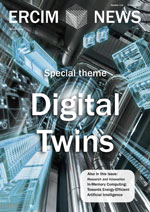Dear SSMJ Reader,
The November 2018 issue of the
South Sudan Medical Journal
is now on online and includes articles on Ebola, Caesarean Section and
Obstetric fistula. You can download the complete issue as a pdf
here or the individual articles listed below.
Please share this notice with your colleagues.
EDITORIAL
Keeping an eye on Ebola Virus Disease Edward Eremugo Kenyi
Between June and November 1976, the medical world was baffled by an
outbreak of a ferocious haemorrhagic disease in Nzara, South Sudan (then
part of Sudan). This became known as Ebola Virus Disease (EVD). The
West African outbreak in Guinea, Liberia and Sierra Leone in 2014 was
devastating. A new outbreak in DR Congo in 2018 is a warning to South
Sudan to be on high alert.
ORIGINAL RESEARCH
Knowledge of type 2 diabetes mellitus and adherence to management guidelines: a cross-sectional study in Juba, South Sudan Alexandre Ali M. Bili and Longying Zha
Inadequate education and the lack of efficient diabetes care centres
compounded by high costs are common barriers for diabetes care. This
study assesses the level of knowledge and adherence to guidelines for
management of type 2 diabetes in South Sudan.
Knowledge, attitude and willingness to accept Caesarean Section among women in Ogbomoso, southwest Nigeria Olumuyiwa A Ogunlaja, Idowu P Ogunlaja, Samuel E Akinola, Olufemi O Aworinde
Caesarean Section (CS) is a common procedure in obstetrics and has
contributed immensely to improving maternal and foetal outcome. The
study which seeks to assess the level of knowledge, attitude and
acceptance of women about CS in Ogbomoso, Nigeria, concludes that
mothers should be educated on the process involved in Caesarean
delivery.
Obstetric
fistulae, birth outcomes, and surgical repair outcomes: a retrospective
analysis of hospital-based data in Dodoma, Tanzania Athanase Lilungulua, Balthazar Gumodokab, Mzee Nassoroc, Patrice Sokac and Kibusi Stephen
Obstetric Fistula (OF) among pregnant women remains a widespread
condition with devastating consequences and poses a significant
challenge in a community as well as globally. The study concludes that
timely fistula repair by experienced fistula surgeons will improve
outcomes and limit the clinical insult and distress that OF invariably
causes.
CLINICAL GUIDANCE
How to repair a vesico-vaginal fistula Brian Hancock
Most fistulae are caused by ischaemic necrosis of the genital tract and
adjacent organs through prolonged obstructed labour. This article
provides a brief overview and refers the reader to resources that cover
the practical aspects of the surgery and holistic care of the patient.
MAIN ARTICLES
Ebola Virus Disease: epidemiology, management, prevention and control Gasim Abd-Elfarag
Ebola Virus Disease (EVD) is part of the group of illnesses known as
viral haemorrhagic fevers, and was previously known as Ebola
haemorrhagic fever. Infection with EVD is acute, severe and often fatal
in humans. The paper provides an outline of what is known about EVD.
Ebola on our doorstep: Ebola Virus Disease preparedness in South Sudan Richard Lako and Otim Patrick Cossy Ramadan
South Sudan has previously experienced three EVD outbreaks in 1976, 1979
and 2004. With recent outbreaks in DR Congo, it is possible that a
sporadic outbreak can happen in South Sudan, and so the country is
always at risk. Preparedness is key.
COMMENTARIES
Internship training in South Sudan: the challenges and way forward Jessry Pasquali Oboya
The House Officer is the professional whom the patient meets most often
when entering hospital and will remember for a long time. The
extraordinary commitment and work load of the House Officers at Juba
Teaching Hospital has received little recognition by the authorities
despite the challenges they face in the course of their training.
The current crisis of human resource for health in Africa Brian Madison
Brain drain has been a source of despair for developing countries, and
the healthcare sector arguably bears the biggest brunt imposed by this
growing problem. The author argues that if Africa is to counter the
healthcare human resources crisis, member states may need to adopt
radical reforms in the healthcare sector.
SHORT ITEMS
Caesarean Section acceptability and rate in South Sudan
Call for submissions
Obituaries
BACK COVER
Neonatal resuscitation chart
This chart is designed with the ‘Helping Babies Breath’ training in
mind. However, it incorporates external cardiac massage, which can be
effective in some cases.
All previous issues of the journal are in the Archive section, and you can ‘search’ for particular articles.
Please support the journal by submitting items for future issues. We
are interested in articles on your research, case reports, and clinical
guidance, as well as news of projects, and relevant photographs. We can
help you prepare these for publication (see our
‘Authors’ Guidelines’). We welcome letters to the editor and questions. Send your contributions to the Editor-in-Chief, Dr Edward Luka
admin@southernsudanmedicaljournal.com.
If you are not already a member, join our
Facebook Group and
share your news and experiences and ideas.
You can follow us on
twitter:
@SSMedJournal. Other people can be added to our mailing list by
clicking
here.
SSMJ is a member of
African Journals Online – see who is downloading SSMJ abstracts and articles
here. We are listed in the
Directory of Open Access Journals (DOAJ), you can find and search DOAJ for SSMJ articles
here.
Kind regards
The SSMJ team












 orcid.org/0000-0002-0192-8965
orcid.org/0000-0002-0192-8965